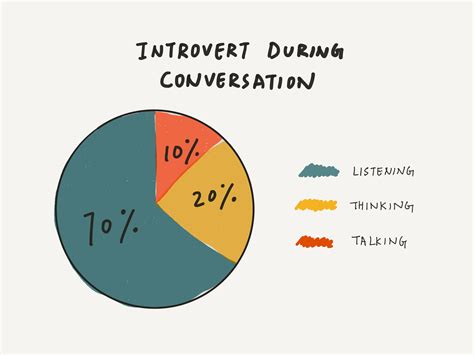
Having a vibrant social life as an introvert doesn’t require a personality overhaul; strategic approaches focusing on quality over quantity and mindful engagement can significantly enhance social experiences, according to experts. Introverts can navigate social situations more comfortably and authentically by employing carefully chosen “cheat codes” that align with their natural tendencies.
Many introverts often struggle in social situations that appear to be inherently designed for extroverts. However, social engagement is not a one-size-fits-all endeavor. Recognizing the unique strengths and limitations associated with introversion is critical to building a social life that’s rewarding and sustainable. These “cheat codes,” or tailored strategies, enable introverts to optimize their social interactions without sacrificing their core identities or energy levels.
Understanding the Introvert’s Social Landscape
Introversion is characterized by a preference for solitary activities and a tendency to recharge through quiet reflection. This does not equate to shyness or social anxiety, though introverts may sometimes experience these feelings. Instead, introverts often find social interactions draining, requiring them to withdraw and replenish their energy reserves. Consequently, traditional social advice that emphasizes constant engagement and large group settings can be counterproductive for introverts.
The key to a fulfilling social life for introverts lies in carefully selecting social activities that align with their interests and energy levels, establishing clear boundaries, and employing strategies to manage social interactions effectively. This approach prioritizes quality over quantity, focusing on meaningful connections and authentic engagement rather than superficial interactions.
17 Social Life “Cheat Codes” for Introverts
The following strategies are designed to help introverts navigate social situations more comfortably and build a social life that is both fulfilling and sustainable:
-
Master the Art of the “Pre-Game”: Prior to attending a social event, take time to mentally prepare and energize yourself. This might involve engaging in a relaxing activity, listening to music, or simply spending a few quiet moments in reflection. “Before you go out, make sure you’re in a good headspace,” advises experts. This preparation can help you enter the social situation feeling more confident and less overwhelmed.
-
Embrace the Power of the Plus-One: Attending social events with a trusted friend or partner can significantly reduce anxiety and provide a sense of security. Having a familiar face nearby allows you to navigate the social landscape with greater ease and offers a built-in buffer when you need a break.
-
Strategic Arrival and Departure: Arriving slightly later to an event can help you avoid the initial rush and allow you to ease into the social environment. Similarly, leaving a bit earlier can prevent you from feeling completely drained and overwhelmed. “Arriving fashionably late (but not too late!) can give you a chance to scope things out and avoid the initial crush,” experts suggest. Knowing when to leave is just as important as knowing when to arrive.
-
Become a Conversation Curator: Instead of trying to engage in multiple superficial conversations, focus on initiating and deepening a few meaningful interactions. Identify individuals who share your interests and engage in discussions that are stimulating and engaging. “Instead of trying to be the life of the party, focus on having a few meaningful conversations,” experts recommend. This approach allows you to connect with others on a deeper level and avoid feeling overwhelmed by the sheer volume of interactions.
-
Embrace the Art of Active Listening: Active listening is a powerful tool for introverts, allowing them to engage in conversations without feeling pressured to dominate the discussion. By focusing on truly hearing and understanding what others are saying, you can create a connection and demonstrate genuine interest. This approach is less taxing than constantly generating conversation topics and allows you to learn from others.
-
Master the Exit Strategy: Having a pre-planned exit strategy can provide a sense of control and reduce anxiety. This might involve setting a specific time to leave or arranging for a friend to signal when it’s time to go. Knowing that you have a way out can make social situations feel less daunting.
-
Find Your Social Niche: Identify social activities that align with your interests and values. This might involve joining a book club, volunteering for a cause you care about, or participating in a hobby group. Engaging in activities that you genuinely enjoy will make socializing feel less like a chore and more like a natural extension of your passions.
-
Utilize the Power of Observation: Introverts are often skilled observers, possessing a keen ability to notice details and nuances that others might miss. Use this skill to your advantage by observing social dynamics and identifying opportunities to contribute meaningfully to conversations. Observing allows you to gather information and formulate thoughtful responses, rather than feeling pressured to speak impulsively.
-
Embrace Small Talk as a Stepping Stone: While small talk may seem superficial, it can serve as a valuable bridge to deeper conversations. Use small talk as an opportunity to gauge someone’s interests and identify common ground. From there, you can transition to more meaningful topics.
-
Prioritize One-on-One Interactions: Introverts often thrive in one-on-one settings, where they can engage in deeper, more meaningful conversations without the distractions of a large group. Prioritize spending time with close friends and building strong, intimate relationships.
-
Embrace Your Introverted Strengths: Recognize and celebrate the unique strengths that come with introversion, such as creativity, empathy, and analytical thinking. These qualities can be valuable assets in social situations, allowing you to offer unique perspectives and connect with others on a deeper level.
-
Create a Social Sanctuary: Designate a quiet space in your home where you can retreat and recharge after social events. This sanctuary should be free from distractions and designed to promote relaxation and rejuvenation.
-
Schedule Downtime: Just as extroverts need social interaction to recharge, introverts need solitude. Schedule regular downtime into your week to allow yourself to rest, reflect, and replenish your energy reserves.
-
Practice Self-Compassion: Be kind to yourself and avoid self-criticism when navigating social situations. Recognize that it’s okay to feel overwhelmed or uncomfortable at times, and allow yourself to take breaks when needed.
-
Set Realistic Expectations: Avoid setting unrealistic expectations for your social life. It’s okay to decline invitations and prioritize your own well-being. Focus on building a social life that is sustainable and fulfilling for you, rather than trying to conform to external expectations.
-
Communicate Your Needs: Don’t be afraid to communicate your needs to your friends and family. Let them know that you need time to recharge and that you may not always be able to attend every social event. Honest communication can help to foster understanding and prevent misunderstandings.
-
Embrace Imperfection: No one is perfect, and it’s okay to make mistakes in social situations. Don’t dwell on your errors or beat yourself up over them. Instead, learn from your experiences and continue to grow and develop your social skills.
Overcoming Common Challenges
Introverts may encounter several challenges when navigating social situations, including:
- Feeling overwhelmed in large crowds: Strategies such as arriving late, leaving early, and sticking with a plus-one can help mitigate this feeling.
- Struggling to initiate conversations: Preparing conversation starters in advance and focusing on active listening can make initiating conversations less daunting.
- Feeling drained after social events: Scheduling downtime and creating a social sanctuary can help introverts recharge and replenish their energy reserves.
- Dealing with social anxiety: Practicing self-compassion and setting realistic expectations can help manage social anxiety.
The Benefits of a Tailored Social Life
By employing these “cheat codes,” introverts can cultivate a social life that is both fulfilling and sustainable. This approach allows them to:
- Build deeper, more meaningful connections: Focusing on quality over quantity allows introverts to forge stronger bonds with others.
- Conserve energy and avoid burnout: Strategic planning and boundary setting help introverts manage their energy levels and avoid feeling overwhelmed.
- Enhance self-confidence and self-esteem: Successfully navigating social situations can boost self-confidence and improve overall well-being.
- Live more authentically: By aligning their social life with their natural tendencies, introverts can live more authentically and embrace their true selves.
Expert Perspectives
Experts emphasize that introversion is not a flaw to be overcome, but rather a personality trait with unique strengths and advantages. By understanding and embracing their introverted nature, individuals can create a social life that is both rewarding and sustainable. They also stress the importance of self-compassion and avoiding comparisons to extroverted ideals. The goal is not to become an extrovert, but to become a more confident and fulfilled introvert.
Adapting the “Cheat Codes” to Different Situations
The “cheat codes” outlined above can be adapted to a variety of social situations, including:
- Workplace events: Networking events can be particularly challenging for introverts. Strategies such as arriving with a colleague, focusing on a few key contacts, and taking breaks in a quiet space can help.
- Family gatherings: Family gatherings can be overwhelming, especially for introverts who are sensitive to noise and social stimulation. Setting boundaries, communicating needs, and taking time for self-care can help manage these situations.
- Dating: Dating can be anxiety-provoking for anyone, but especially for introverts. Prioritizing one-on-one dates, choosing quiet settings, and being honest about your needs can help create a more comfortable and authentic experience.
- Parties and social gatherings: Parties can be draining for introverts. Arriving late, leaving early, sticking with a friend, and finding a quiet corner to observe can help make these events more manageable.
Long-Term Strategies for Social Well-being
Building a fulfilling social life is an ongoing process. In addition to the “cheat codes” outlined above, there are several long-term strategies that introverts can employ to enhance their social well-being:
- Cultivate self-awareness: Understanding your own needs, preferences, and limitations is essential for building a social life that is sustainable and rewarding.
- Practice mindfulness: Mindfulness can help you become more aware of your thoughts, feelings, and sensations, allowing you to respond to social situations with greater intention and awareness.
- Develop healthy coping mechanisms: Learning healthy coping mechanisms for managing stress and anxiety can help you navigate social situations more effectively.
- Seek support: Don’t be afraid to seek support from friends, family, or a therapist. Talking about your challenges and concerns can help you feel less alone and more empowered.
- Embrace lifelong learning: Continue to learn and grow as a person. Engaging in activities that stimulate your mind and expand your horizons can enhance your social skills and broaden your social circle.
By embracing these strategies, introverts can create a social life that is both fulfilling and sustainable, allowing them to thrive in a world that often seems designed for extroverts. The key is to prioritize authenticity, self-care, and meaningful connections.
FAQ: Introvert’s Guide to Social Life “Cheat Codes”
- What if I try these “cheat codes” and still feel awkward or uncomfortable in social situations?
It’s important to remember that social skills are developed over time and that it’s okay to feel awkward or uncomfortable at times. Practice self-compassion and avoid self-criticism. Focus on your progress and celebrate your successes, no matter how small. If you continue to struggle with social anxiety, consider seeking professional help from a therapist or counselor.
- How do I balance my need for solitude with the desire to have a social life?
Balancing solitude and social interaction is a key challenge for introverts. The key is to prioritize self-care and schedule regular downtime into your week. Don’t feel pressured to attend every social event. It’s okay to decline invitations and prioritize your own well-being. Communicate your needs to your friends and family and let them know that you need time to recharge.
- What if my friends and family don’t understand my need for solitude?
It can be challenging to navigate relationships with people who don’t understand introversion. Educate your friends and family about your needs and explain why solitude is important for your well-being. Be patient and understanding, and try to find compromises that work for everyone. If necessary, seek support from other introverts who understand your experiences.
- Are these “cheat codes” only for introverts?
While these “cheat codes” are specifically designed for introverts, some of them can be beneficial for anyone who struggles with social situations. Strategies such as active listening, setting boundaries, and practicing self-compassion can be helpful for people of all personality types.
- How can I find social activities that are a good fit for me?
Identify your interests and values and look for social activities that align with them. Consider joining a book club, volunteering for a cause you care about, or participating in a hobby group. Try different activities until you find something that you enjoy and that feels comfortable for you. Don’t be afraid to step outside of your comfort zone, but also be mindful of your energy levels and avoid overcommitting yourself. It’s also helpful to consider the setting (small, intimate gatherings versus large, loud parties) and the people involved (do you generally enjoy their company?).
Further Exploration:
To further enhance your understanding of introversion and social strategies, consider exploring these resources:
- Books: “Quiet: The Power of Introverts in a World That Can’t Stop Talking” by Susan Cain; “The Introvert Advantage: How to Thrive in an Extrovert World” by Marti Olsen Laney
- Websites: The Introvert Dear (introvertdear.com); Psychology Today (search for articles on introversion)
- Therapists and Counselors: Look for therapists who specialize in working with introverts and can provide personalized guidance and support.
By understanding and embracing your introverted nature, you can create a social life that is both fulfilling and sustainable, allowing you to thrive in a world that often seems designed for extroverts. Remember, the key is to prioritize authenticity, self-care, and meaningful connections. Don’t try to change who you are, but rather learn to navigate social situations in a way that feels comfortable and empowering.









